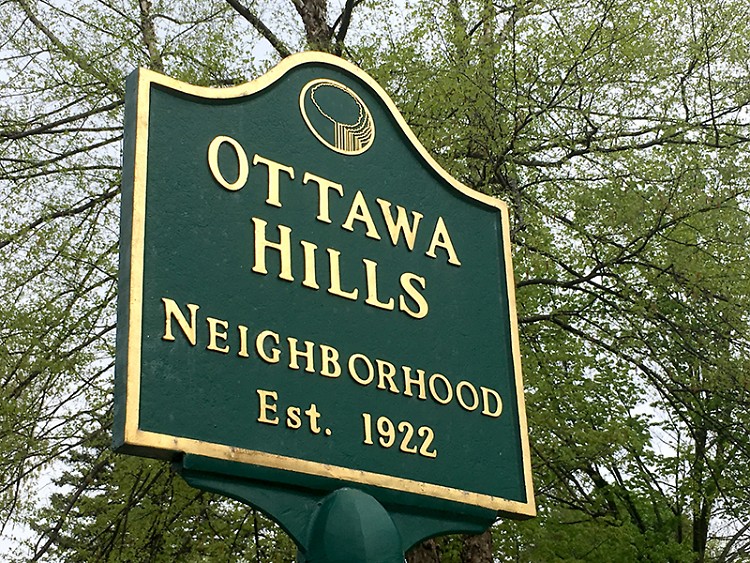On Thursday, April 11, 2019, Fred Davison will present the story of the beginnings, development, and struggles of the Ottawa Hills Neighborhood; see the varied and beautiful architecture of the houses, meet the prominent citizens who have added to the city; and watch the evolution of the schools.
In the early 1900s, the 160-acre pig farm owned by Nelson Higbee was purchased and developed into a 9 hole golf course. Over the next 20 years, the golf course changed hands several times. Ultimately one of the original owners and a friend decided to develop part of the land that was to become the Ottawa Hills neighborhood. The land was platted along landscape lines featuring beautiful winding drives and large open areas where streets intersect. The first set of lots were put on the market in 1922. The lots sold so quickly that a second plat was put on the market in 1923. The neighborhood was (and is) bordered on the north by Franklin Street, on the south by Hall Street, on the west by Giddings Avenue and on the East by the border of East Grand Rapids (then Grand Rapids Township).
In 1925, a High School was built on land left open for that purpose. By 1928, 200 brick homes dotted the landscape. Franklin Park (now Martin Luther King Park) was two blocks away. Calvin College and Clark home were just north of the neighborhood. There was little change during the Depression and World War II. In the 1960s property values decreased during racial tensions in the city. Ottawa Hills Neighborhood Association organized to stop realtors from redlining and blockbusting and soliciting listings with scare tactics.
The Ottawa Hill Neighborhood Association became a driving force over the years and sponsored a babysitting co-op, a bridge group, a garden tour, and other activities, installed decorative streetlights twice, and has been a long-time supporter of the Hollyhock Lane Parade.
The association was involved in the sale of the school building to Grand Rapids Christian schools when the Grand Rapids Public School system decided to sell the old building. This once again has stabilized the neighborhood.
Come hear the story of the beginnings, development, and struggles of the Ottawa Hills Neighborhood; see the varied and beautiful architecture of the houses, meet the prominent citizens who have added to the city; watch the evolution of the schools, and see how the neighborhood continues to carry on old traditions.
Fred Davison
Fred is a spokesman for the Ottawa Hills Neighborhood Association Historical Committee is an attorney who grew up in the Ottawa Hills neighborhood and attended Ottawa Hills schools from 1951 thru graduation is 1965. He continued to have contact with the neighborhood as his parents owned their home in the neighborhood until 2014. After high school, he attended GVSC, now University and graduated in 1969. Following graduation, he attended Western Michigan University, the University of Michigan in a graduate program and then attended and graduated from Valparaiso University Law School in 1974. In 1986 he returned to the neighborhood with his family where they have lived ever since. While in the neighborhood he served as Vice President of the Neighborhood Association and currently serves as the President of the Association since 2016.
The Rapidian, a program of the 501(c)3 nonprofit Community Media Center, relies on the community’s support to help cover the cost of training reporters and publishing content.
We need your help.
If each of our readers and content creators who values this community platform help support its creation and maintenance, The Rapidian can continue to educate and facilitate a conversation around issues for years to come.
Please support The Rapidian and make a contribution today.


